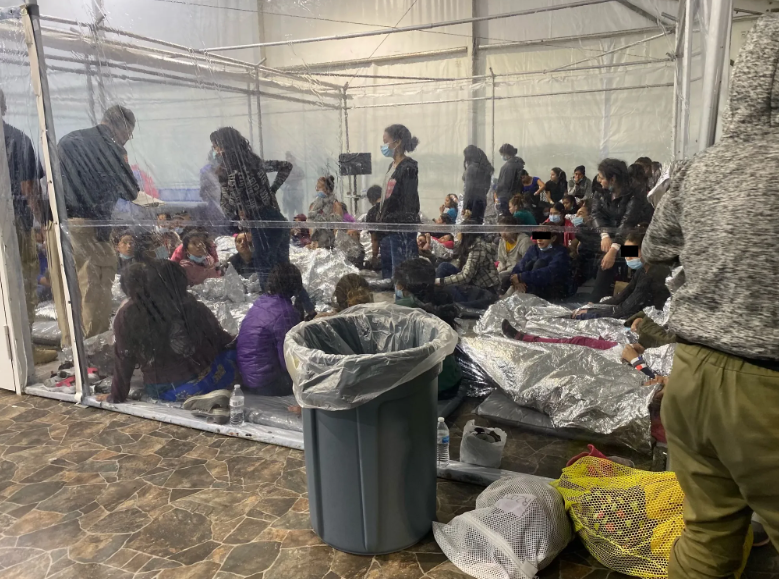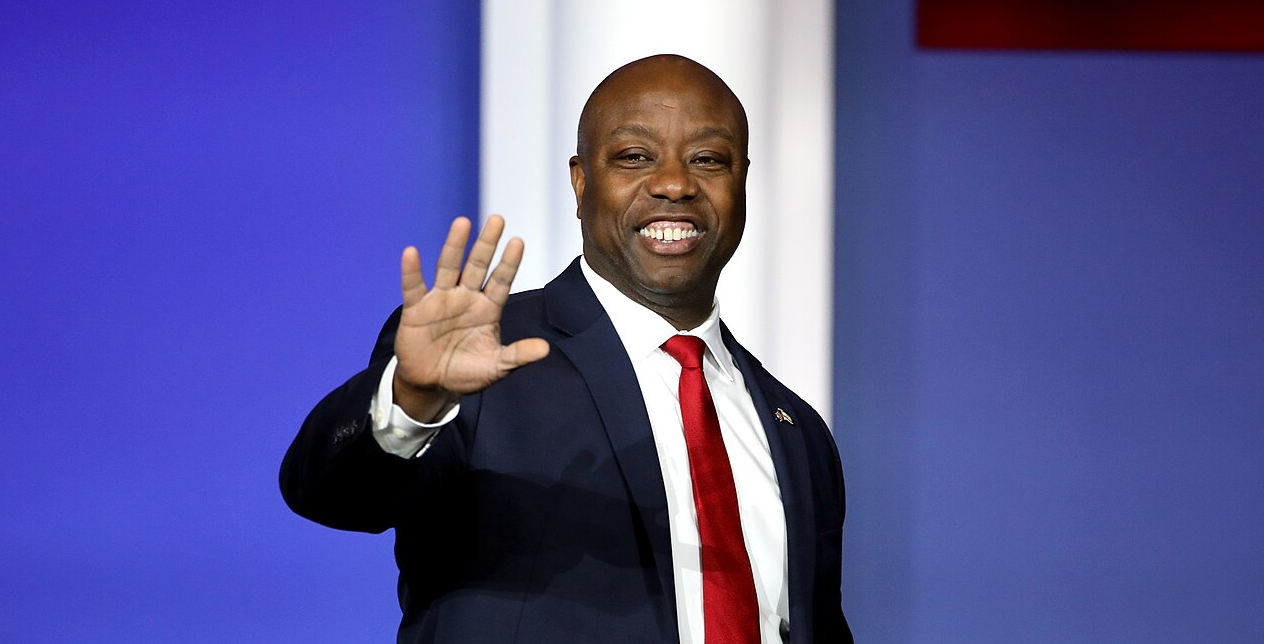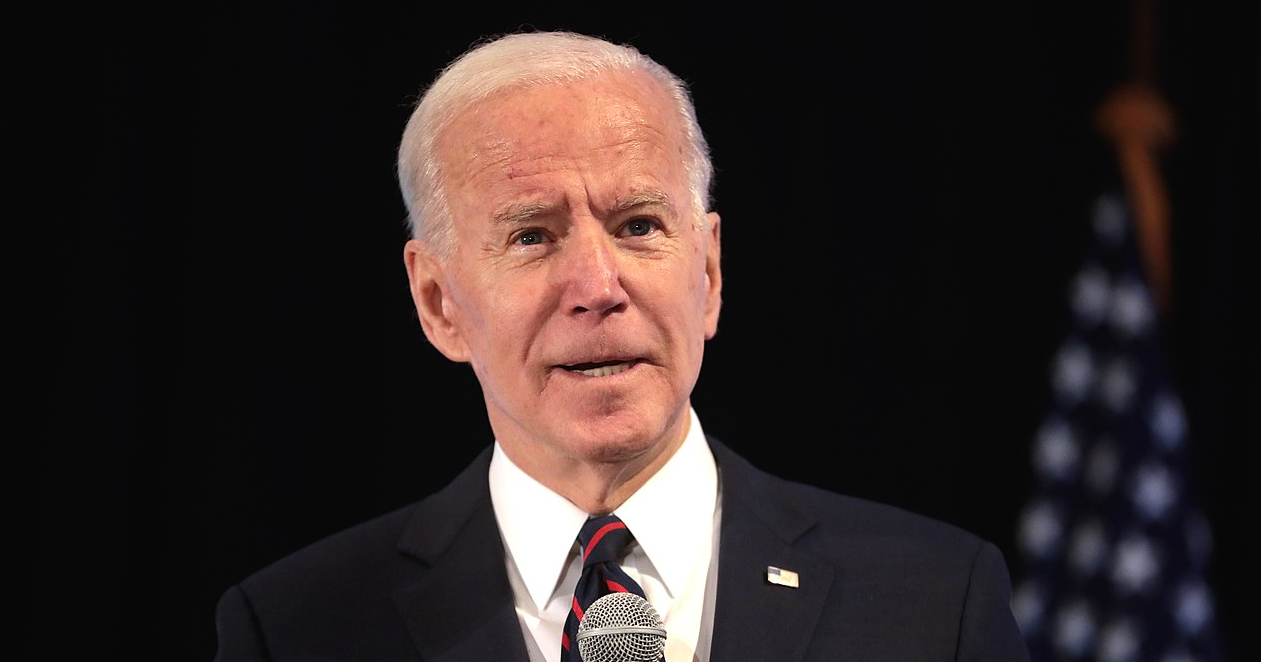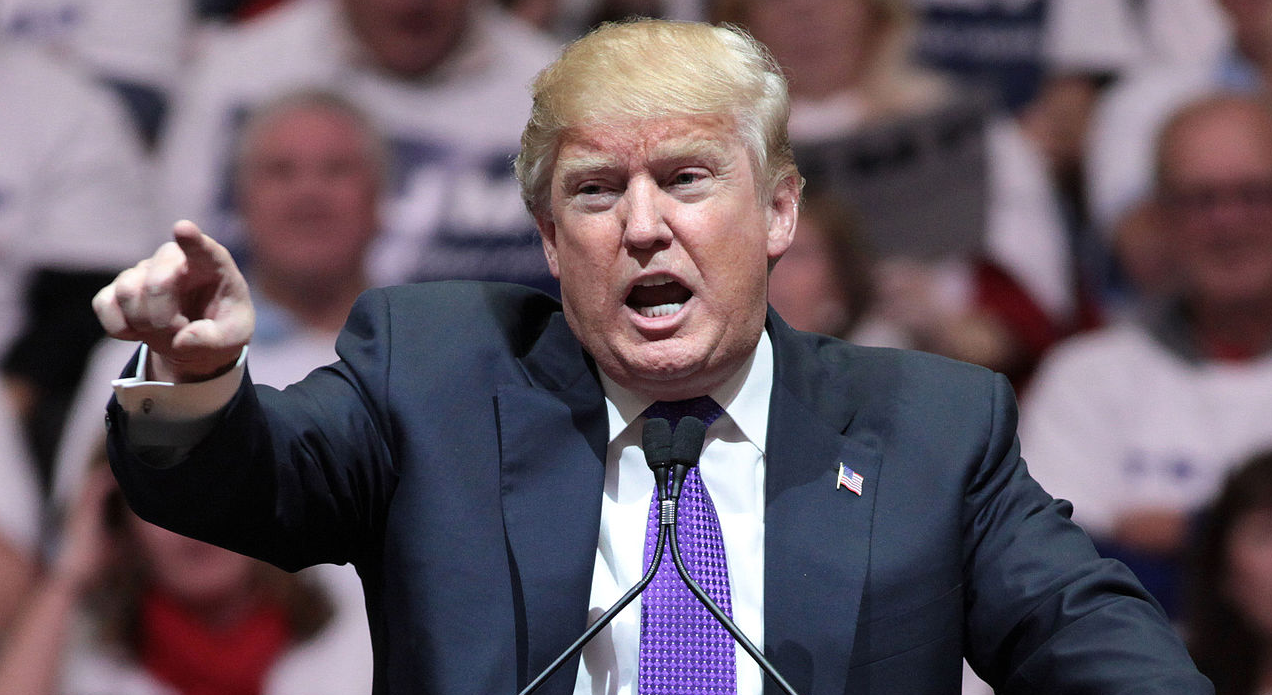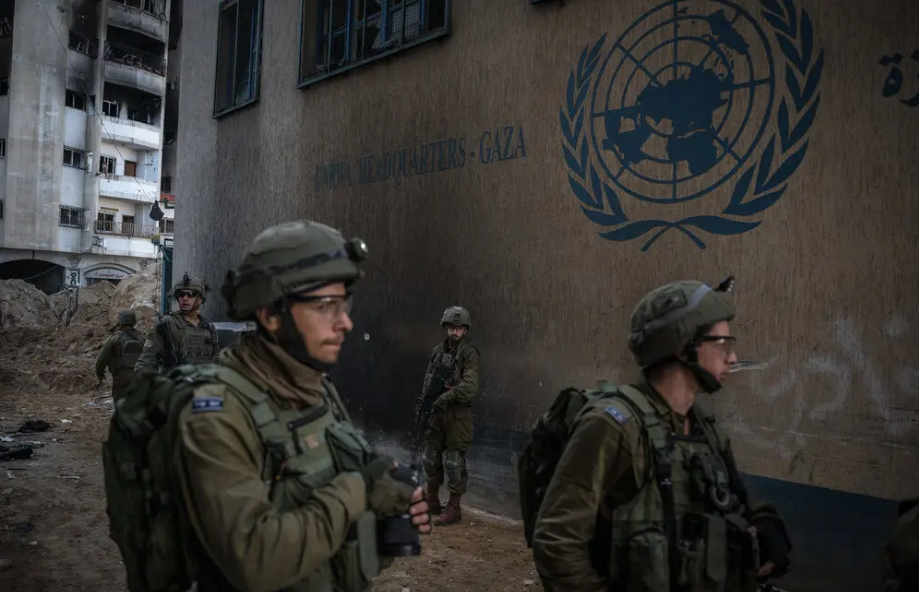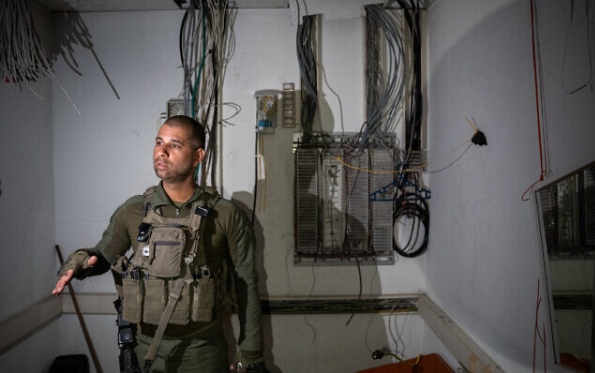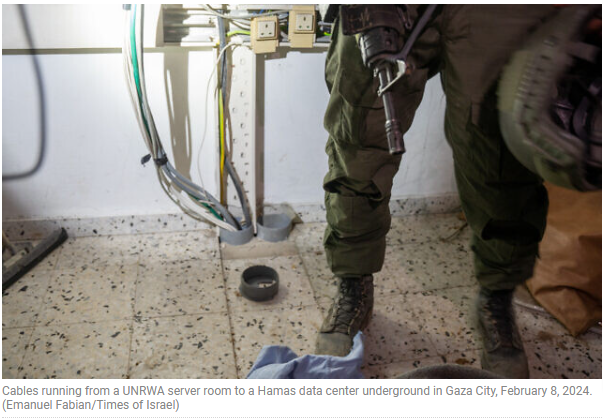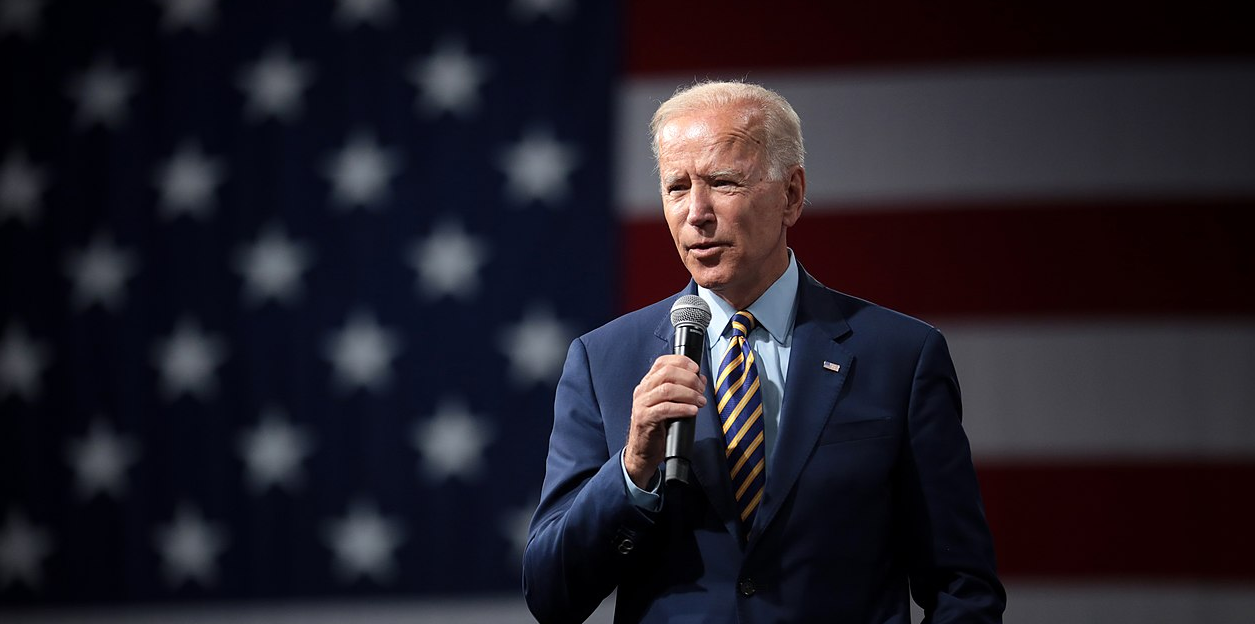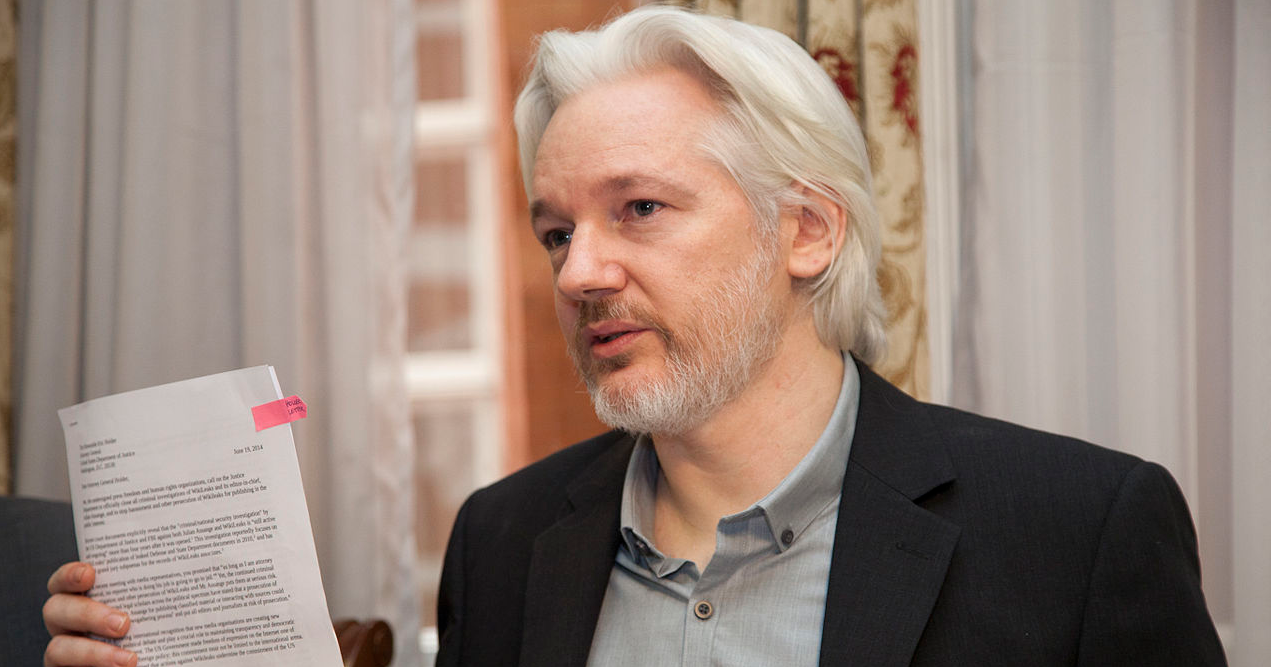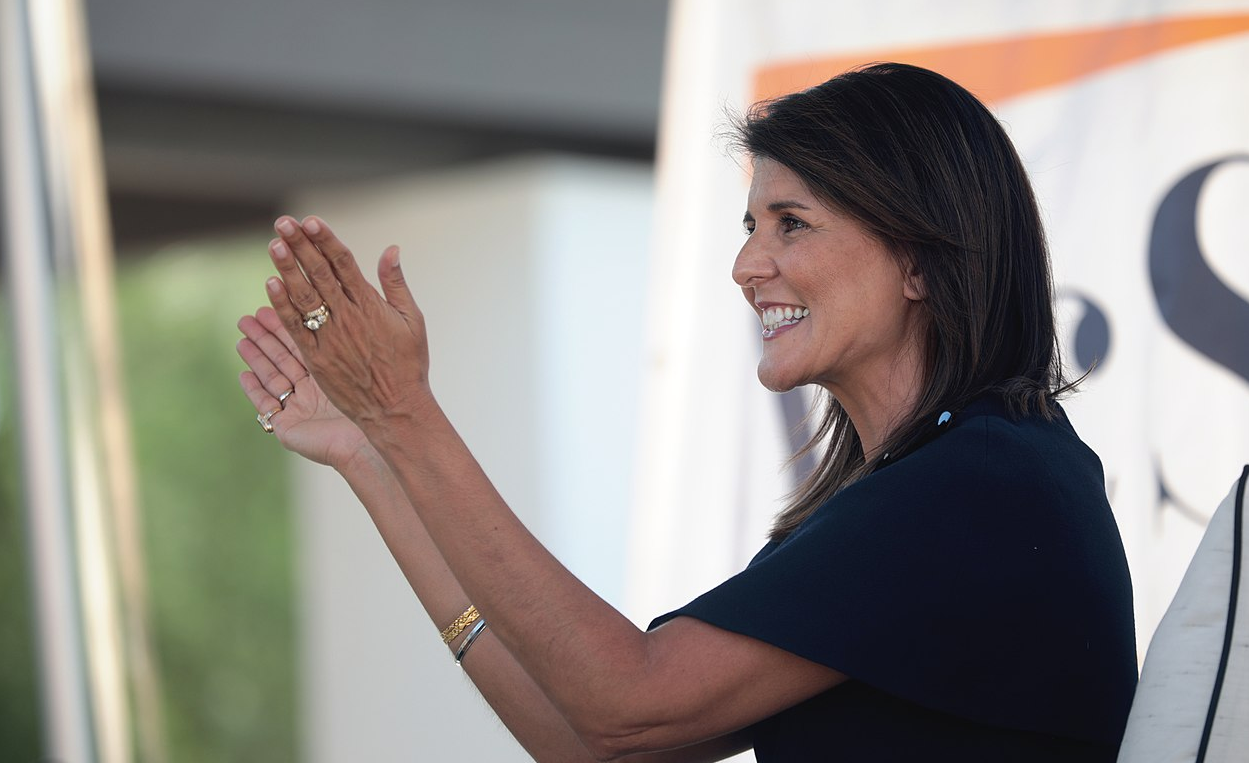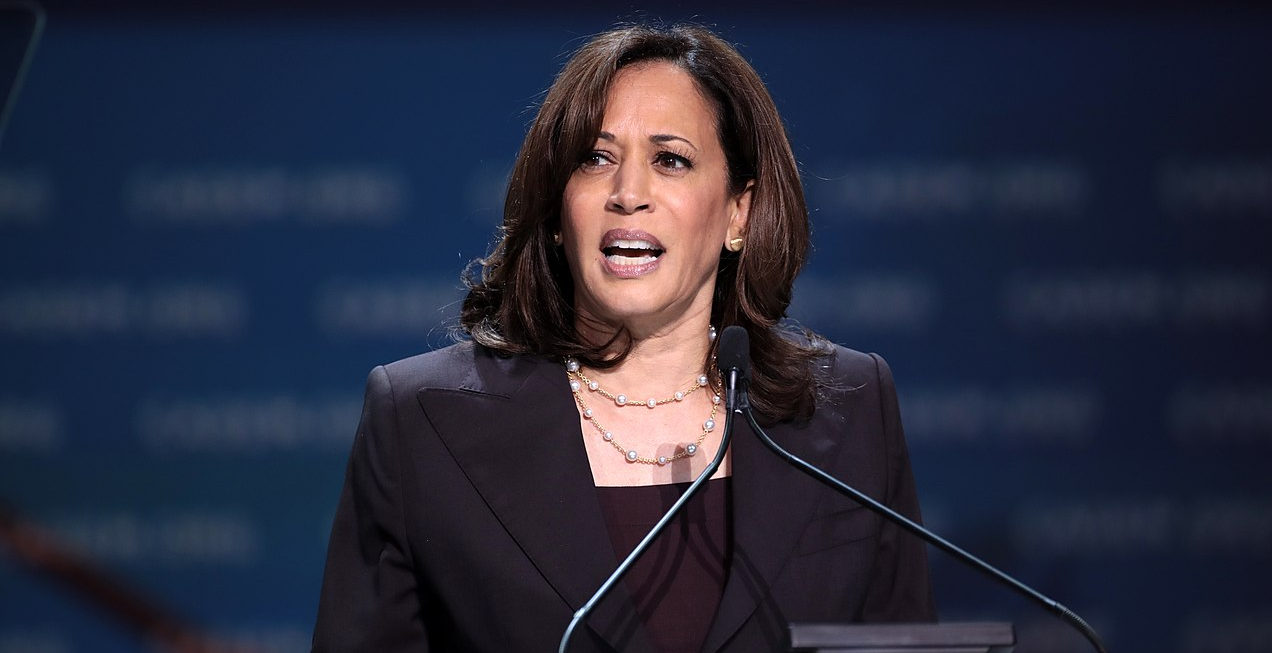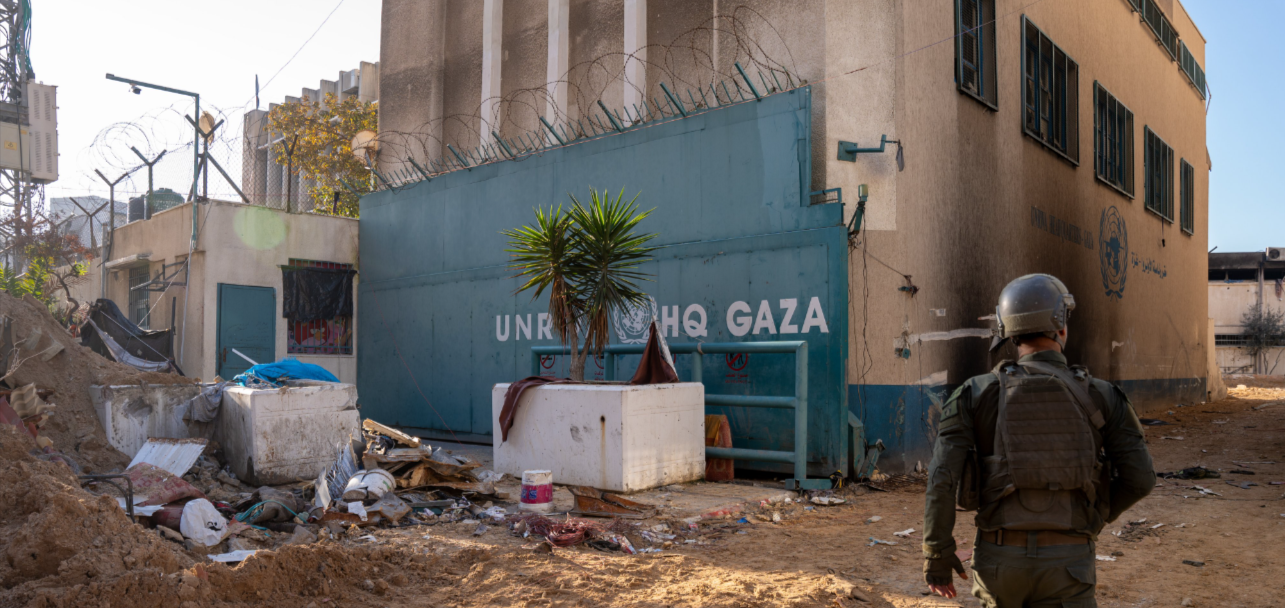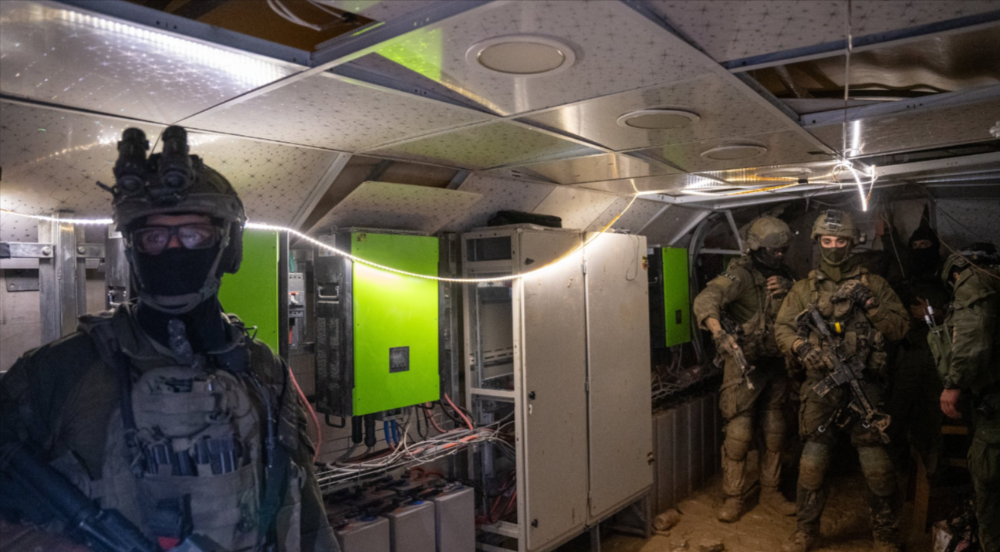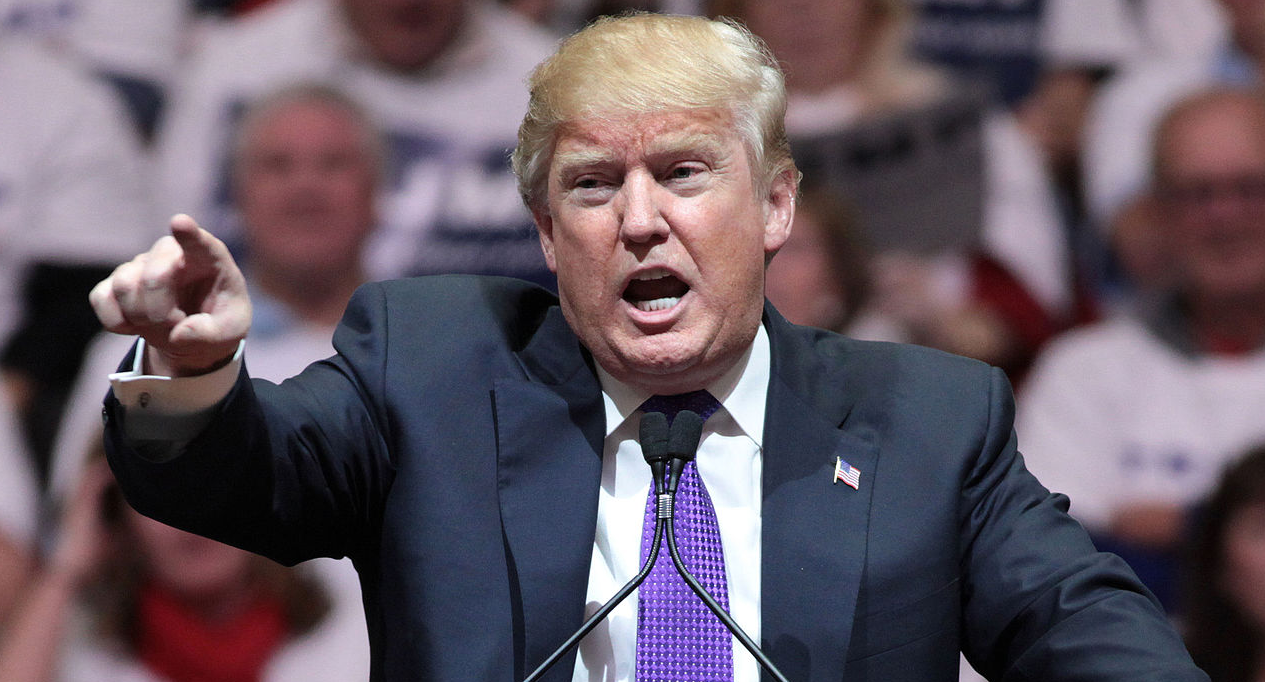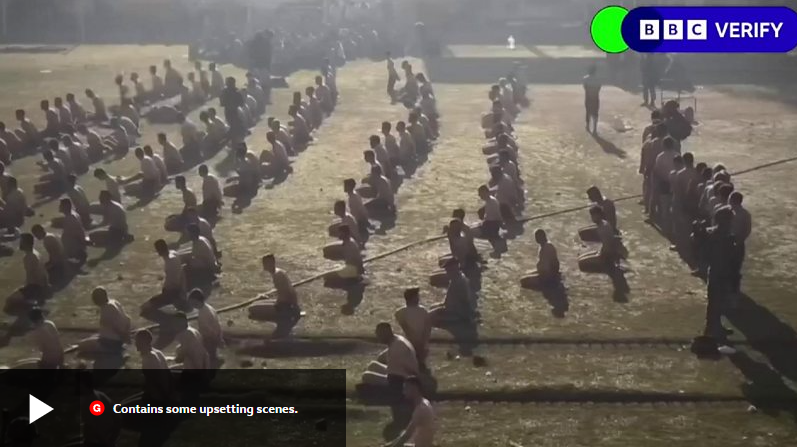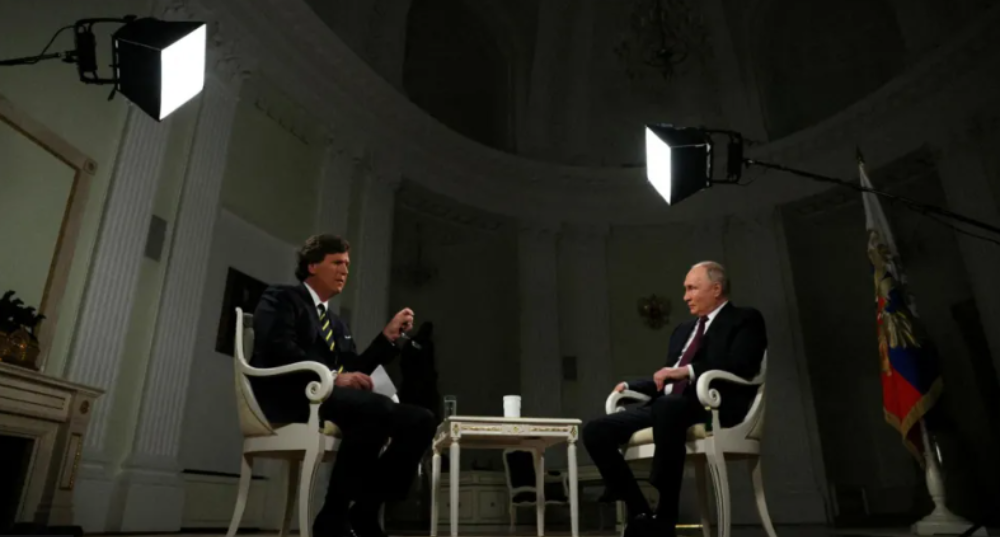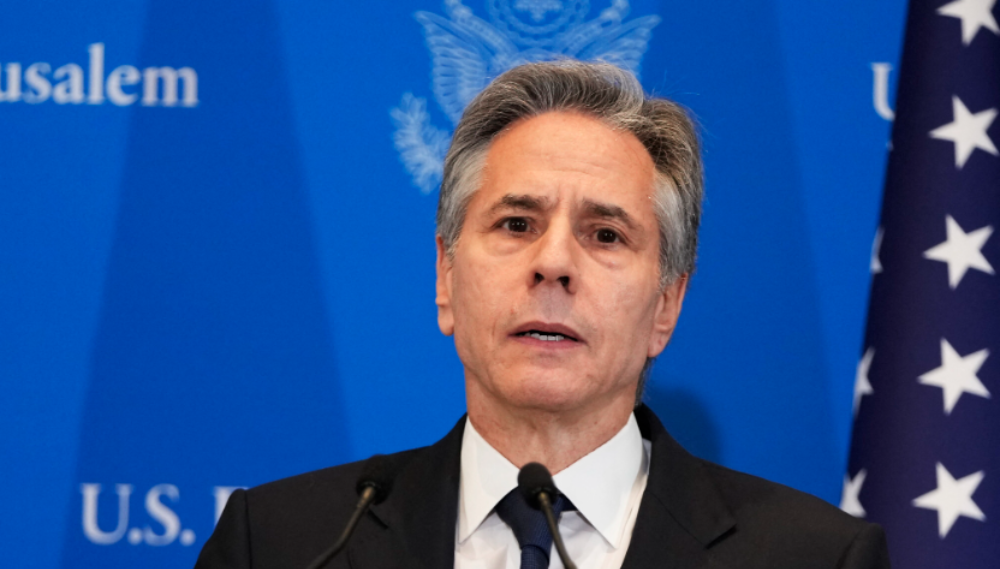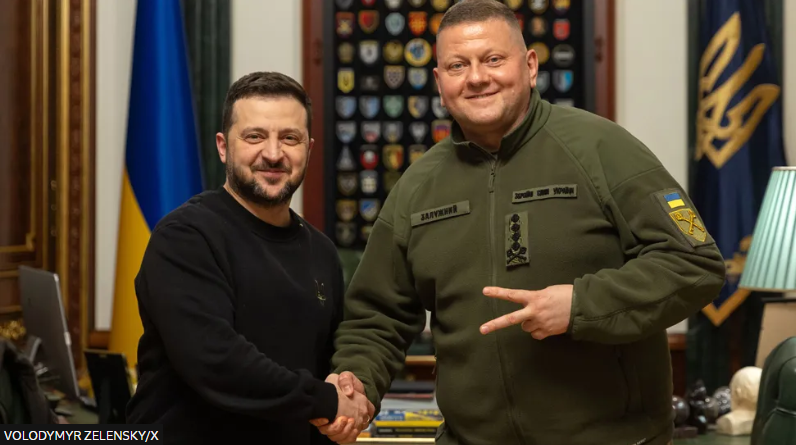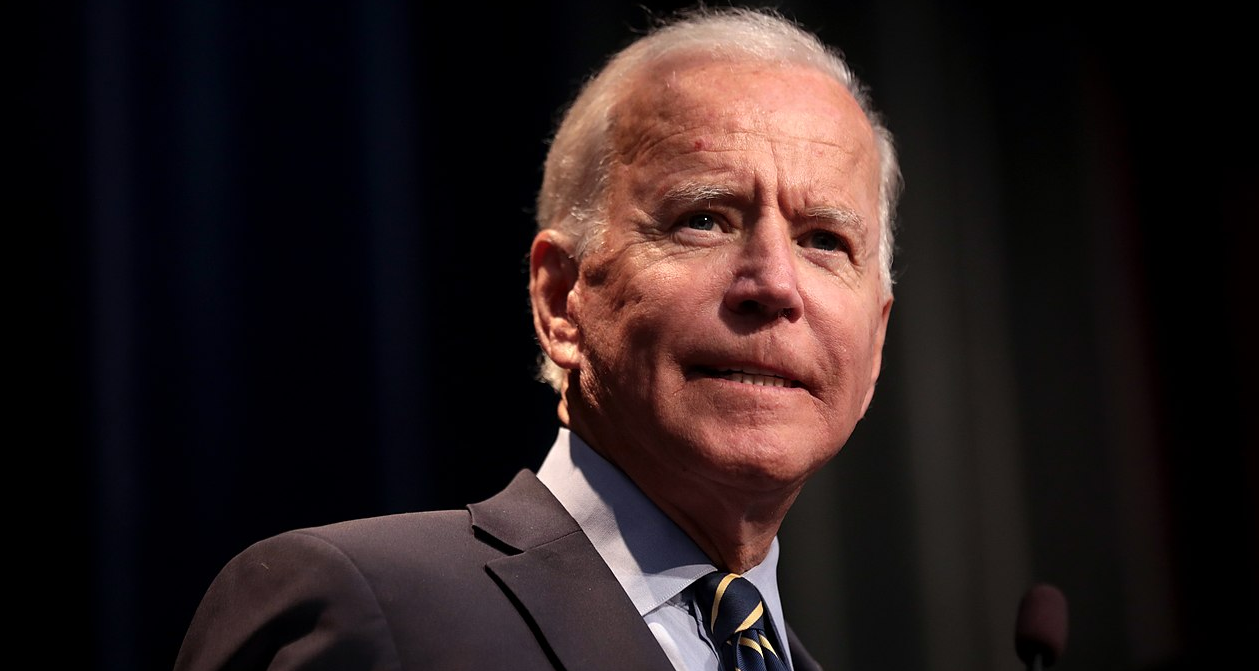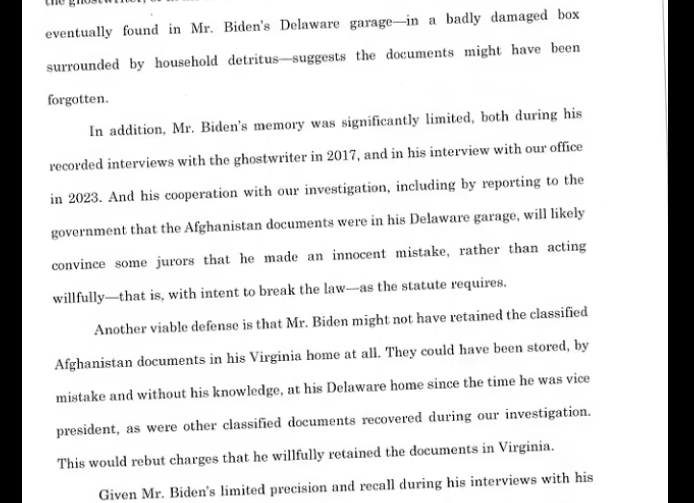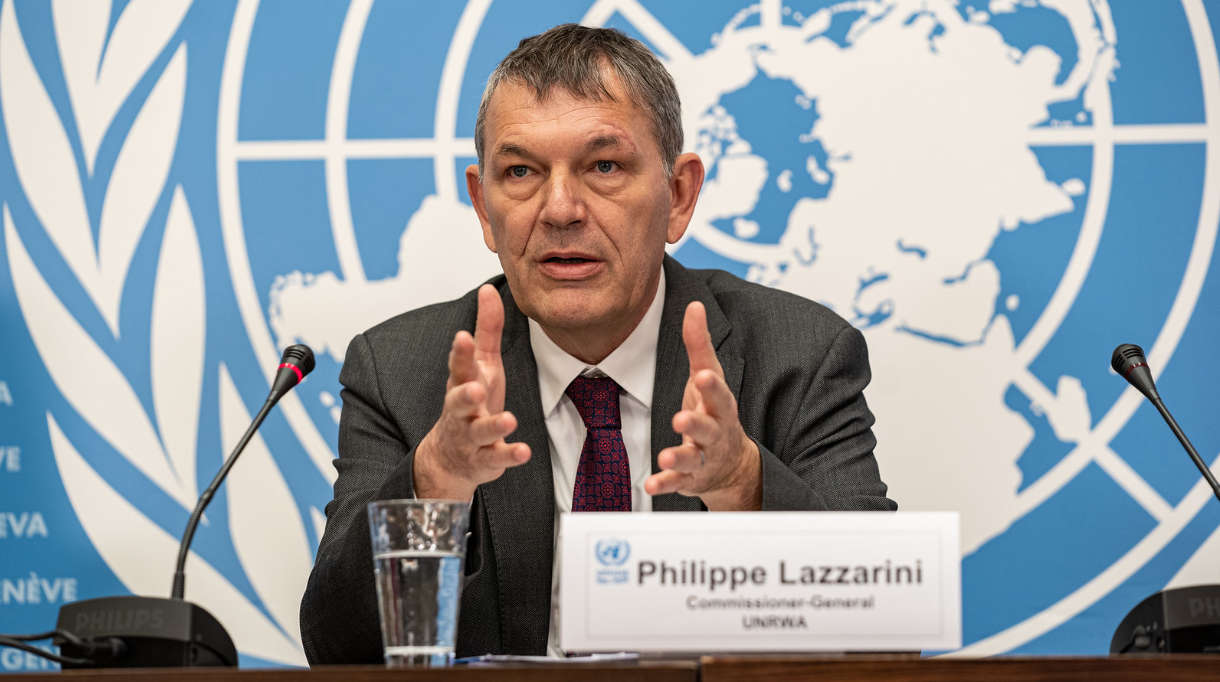-
Posts
10,051 -
Joined
-
Last visited
Content Type
Events
Forums
Downloads
Quizzes
Gallery
Blogs
Everything posted by Social Media
-
President Biden's handling of the border crisis has been marked by internal turmoil, policy reversals, and growing political pressure. A previously unreported meeting aboard Air Force One in January 2023 highlights the administration's struggle with the complex issue of immigration, characterized by infighting and indecision. The meeting, where Biden vented frustration at his team's inability to provide obscure immigration data, underscores the challenges faced by his administration in addressing the border crisis. Despite White House claims of productivity, insiders reveal a different picture of internal discord and disjointed decision-making. While external factors like global calamities and decades of congressional inaction contribute to the crisis, the Biden administration's response has been marred by bureaucratic inertia and conflicting ideologies. The lack of clear ownership of the issue within the administration has hindered a coordinated response, with some officials avoiding responsibility for the politically contentious matter. Vice President Kamala Harris's role in addressing the root causes of migration from Central America has been criticized as ineffective, leaving a leadership vacuum in the administration's approach to the crisis. Meanwhile, National Security Advisor Jake Sullivan's delegation of border issues to inexperienced personnel reflects a disjointed strategy that has struggled to address the evolving challenges at the border. Internal divisions within the White House and the Democratic Party further complicate efforts to formulate a coherent border policy. Conflicting priorities between punitive measures and humanitarian reforms have led to contradictory actions, exacerbating the crisis and undermining public confidence in the administration's approach. The administration's initial reluctance to acknowledge the severity of the crisis and its limited public engagement on immigration issues have allowed criticism to flourish, contributing to a perception of incompetence and disarray. While President Biden has shown personal engagement on the issue, internal conflicts and missteps continue to hamper efforts to effectively address the border crisis. As the administration grapples with mounting pressure and scrutiny, the path forward remains uncertain. The border crisis represents a significant challenge for the Biden administration, testing its ability to navigate complex policy issues and political realities in a deeply polarized environment. 13.02.24 Source
-
Senator Tim Scott of South Carolina is swiftly gaining traction as a potential running mate for former President Donald Trump, according to recent reports. With Trump and his allies impressed by Scott's unwavering support and effective role as a surrogate, speculation is rife that the senator may be tapped for the vice presidential slot. Sources close to both Trump and Scott have indicated that the possibility of Scott joining the ticket is indeed a "real possibility." Scott's recent endorsement of Trump ahead of the New Hampshire primary has further elevated his profile, showcasing his willingness to champion Trump's agenda on the campaign trail. Trump himself has acknowledged Scott's potential, describing him as a strong candidate for the vice presidency and praising his endorsement. The two have a history of collaboration during Trump's presidency, particularly on legislative initiatives such as tax cuts, criminal justice reform, and funding for historically Black colleges and universities. Despite Scott's rising prominence in the vice presidential speculation, he remains focused on his role as a surrogate for Trump, emphasizing the importance of continuing the administration's agenda. While Trump has not made any formal offer to Scott regarding the vice presidency, the senator's dedication to advancing Trump's priorities has not gone unnoticed. Scott's potential selection as Trump's running mate carries significant implications, particularly in terms of policy alignment and outreach to voters of color. His presence on the ticket could help bridge gaps within the Republican Party and appeal to a broader electorate. However, Scott's candidacy is not without challenges. His past positions, including his support for certifying the 2020 election results and criticism of Trump's handling of the Charlottesville incident, may raise concerns among some Trump loyalists. Additionally, questions remain about Scott's debate skills and his ability to effectively counter Vice President Kamala Harris in potential debates. Despite these considerations, Scott's supporters view him as a formidable contender for the vice presidency, citing his impressive resume and compelling life story. While the ultimate decision rests with Trump, Scott's emergence as a top contender underscores the significance of his role in shaping the future of the Republican Party. As speculation continues to swirl, Scott remains committed to his mission of advancing conservative principles and supporting Trump's reelection bid. Whether he ultimately joins the ticket or not, Scott's ascent in the vice presidential "veepstakes" reflects his growing influence within the party and his potential to play a pivotal role in the 2024 election cycle. 13.02.24 Source
-
A recent study has sounded the alarm on the potential collapse of the Atlantic Meridional Overturning Circulation (AMOC), a crucial ocean system responsible for regulating global climate. The findings, based on complex computer simulations, suggest that a "cliff-like" tipping point is looming in the future, with catastrophic consequences for weather patterns worldwide. The AMOC plays a vital role in redistributing heat around the globe, influencing temperatures, ocean currents, and weather systems. However, as Greenland's ice sheet continues to melt due to global warming, the influx of freshwater into the North Atlantic is slowing down this crucial circulation system. The implications of an AMOC collapse would be profound. Northwestern Europe could face temperature drops of up to 27 degrees Celsius over the decades, while Arctic ice would extend farther south. The Southern Hemisphere could experience intensified heat, global rainfall patterns would shift, and the Amazon rainforest would be disrupted. The ripple effects would cause worldwide food and water shortages, turning the nightmare scenario depicted in "The Day After Tomorrow" into a potential reality. Lead author of the study, Rene van Westen, emphasizes that while the collapse may still be decades away, it could happen sooner than previously thought, especially with the accelerating pace of climate change. The rate of climate change induced by human activities is a critical factor in determining the timeline of this impending catastrophe. While some experts, including the United Nations' Intergovernmental Panel on Climate Change, have downplayed the likelihood of a collapse before 2100, the new study raises concerns about the urgency of addressing this issue. Stefan Rahmstorf, from the Potsdam Institute for Climate Research, warns that ignoring the risk of an AMOC collapse would be perilous. The study underscores the need for increased monitoring and understanding of the AMOC's stability. Despite signs of past collapses, predicting the exact timing and consequences of future changes remains uncertain. However, the study's findings highlight the importance of taking decisive action to mitigate climate change and prevent potential catastrophes. While the prospect of an AMOC collapse is daunting, it is essential to address immediate climate challenges, such as rising temperatures and extreme weather events. Joel Hirschi, from the United Kingdom's National Oceanography Centre, emphasizes the urgency of addressing ongoing warming trends that are already impacting society. In the face of these warnings, global attention and concerted action are needed to safeguard the stability of Earth's climate systems and protect the future of our planet. 13.02.24 Source
-
Age Concerns Plague Biden Following Special Counsel's Report: Poll Reveals Public Perception A recent ABC News/Ipsos poll has shed light on growing concerns over President Biden's age following the release of a special counsel's report detailing his lack of recall. The poll, conducted in the wake of the report, found that a staggering 86 percent of Americans believe Biden, at 81 years old, is too old to serve in office. Biden's status as the oldest president to run for office has intensified scrutiny over his ability to lead, especially when compared to his likely GOP opponent in the 2024 election, former President Trump, who is 77 years old. Interestingly, the poll also revealed that 59 percent of Americans consider both Biden and Trump to be too old for the presidency. The special counsel's report, authored by Robert Hur, painted a picture of Biden as a "well-meaning elderly man with a poor memory," reigniting concerns about his age and cognitive abilities. This portrayal has once again brought the issue of age to the forefront of Biden's reelection campaign. This latest poll reflects a trend seen in previous surveys, indicating that voters view Biden's age as a significant factor in his ability to serve. In September, a similar poll conducted by ABC News/Washington Post showed that 74 percent of Americans believed Biden was too old for another presidential term, while 49 percent held the same view about Trump. Aside from age-related concerns, the poll also delved into public opinion on Biden's handling of classified documents and Trump's legal troubles. While opinions were divided on whether Biden should have been charged for his handling of classified documents after leaving office, a majority of Americans (66 percent) believe that Trump should not be immune to criminal prosecution for actions taken during his presidency. Trump's legal team has been advocating for immunity from prosecution in his federal January 6 case, a stance that was rejected by an appeals court, prompting the matter to be sent to the Supreme Court. Conducted from February 9 to 10, the ABC News/Ipsos poll surveyed 528 adults aged 18 or older and has a margin of error of plus or minus 4.5 percentage points. As the political landscape continues to evolve, these poll results offer valuable insights into the public perception of key issues surrounding Biden's presidency and the upcoming election. 13.02.24 Source
-

As Israel attacks Rafah, US offers only words of caution
Social Media replied to Social Media's topic in The War in Israel
Topic Update: IDF special forces rescue 2 hostages in 'daring' overnight operation in Rafah In a daring nighttime operation, the Israel Defense Forces (IDF) successfully rescued two male Israeli hostages from the city of Rafah in Gaza, amidst heavy Israeli airstrikes targeting the area. The hostages, identified as Fernando Simon Marman, 60, and Louis Har, 70, were found to be in good medical condition after their rescue and were swiftly transported to an Israeli hospital for further evaluation and care. The IDF, in collaboration with the Israel Security Agency (ISA) and Israel Police, conducted the joint operation, marking a significant victory for Israeli security forces. The operation's success was hailed by Defense Minister Yoav Gallant as "impressive," reaffirming Israel's commitment to retrieving abducted citizens by any means necessary. Reports indicate that the hostages had been held captive on the second floor of a building in Rafah, highlighting the perilous conditions they endured prior to their rescue. The exact details of the operation remain undisclosed, but footage released by the IDF showed a helicopter landing at an undisclosed location, suggesting the involvement of aerial assets in the rescue mission. Upon their arrival at Sheba Medical Center in central Israel, the rescued hostages underwent initial medical assessments and were reported to be in stable condition. Armon Aek, acting director at the medical center, expressed relief at their safe return and praised the swift response of the medical staff in attending to their needs. The rescue operation comes in the wake of escalating tensions in the region, with Hamas militants unleashing a deadly assault on southern Israel, resulting in numerous casualties and the abduction of innocent civilians. Israel's decisive action to retrieve its citizens underscores its unwavering commitment to safeguarding the lives of its people and maintaining security within its borders. In response to the escalating violence, Israel launched a series of airstrikes targeting key Hamas positions in Rafah and surrounding areas. Eyewitnesses reported intense bombardment by air and sea, indicating a concerted effort by Israeli forces to neutralize Hamas threats and secure the safe return of the hostages. Conflicting reports emerged regarding the casualties from the airstrikes, with figures ranging from 37 to 52 Palestinians killed, including children, according to various sources. The disparity underscores the chaotic and volatile situation on the ground, with Gaza's Hamas-run health ministry condemning the Israeli military's actions as indiscriminate and disproportionate. Source Source -
In a startling statement at a rally in South Carolina, former President Donald Trump declared that he would "encourage" Russia to attack any NATO member failing to meet its financial obligations within the alliance. Recalling a hypothetical scenario presented by the leader of a "big country" during a NATO meeting, Trump recounted his response, indicating that if a nation was delinquent in its payments and came under attack from Moscow, he would not offer protection but instead urge the aggressors to act freely. This stance directly contravenes NATO's commitment to defend all member nations against external aggression. The White House swiftly condemned Trump's remarks as "appalling and unhinged," emphasizing their potential to endanger American national security, global stability, and the domestic economy. Trump's tendency to criticize NATO's financial burden on the United States has long been known, with his skepticism towards the alliance dating back to his time in office. While Russia's invasion of Ukraine occurred after Trump's presidency, he has continued to express dissatisfaction with the substantial financial aid provided by the US to Ukraine, a non-NATO member. Despite the significant assistance rendered to Ukraine, recent Republican opposition in Congress has stymied efforts to allocate new funding, with demands for stringent measures on immigration policy becoming a sticking point. Trump's celebration of the rejection of President Biden's proposals regarding aid to Ukraine underscores the contentious nature of US foreign policy debates, particularly concerning the allocation of resources and priorities in international relations. As senators now navigate the issue of aid funding separately from immigration measures, the broader implications of Trump's rhetoric and its impact on US global standing remain subjects of concern and debate. NATO Responds Former President Donald Trump's recent remarks suggesting that the US would not protect NATO allies failing to meet defense spending targets have drawn sharp criticism from NATO's chief and President Joe Biden. Trump's comments, made during a rally in South Carolina, implied that he would encourage Russia to attack NATO members not meeting the alliance's spending goals. Jens Stoltenberg, NATO's secretary-general, condemned Trump's remarks, stating that they undermine the security of all NATO members and put American and European soldiers at greater risk. President Biden described Trump's comments as "appalling and dangerous," suggesting they would give Russian President Vladimir Putin a "green light" for further aggression. Trump's assertion comes amidst concerns about NATO members' defense spending, with many falling short of the alliance's target of 2% of GDP. However, Stoltenberg emphasized that NATO remains prepared to defend its members and will respond forcefully to any attack. Trump's comments have sparked debate about the US commitment to NATO and its role in European security. Nikki Haley, Trump's Republican rival for the presidential nomination, warned against siding with Russia, describing Putin as a "thug who kills his opponents." Trump's longstanding criticism of NATO and calls for burden-sharing reflect broader concerns in the US about the financial burden of guaranteeing the defense of other nations. However, experts warn that Trump's remarks risk damaging the unity of the NATO alliance, particularly at a time of heightened tensions with Russia. The situation is further complicated by Russia's military aggression, including its invasion of Ukraine in 2022. While the US has provided significant financial support to Ukraine, recent Republican opposition to new funding has created additional challenges. Overall, Trump's comments have reignited debates about US foreign policy, NATO's role in European security, and the implications of Russian aggression in the region. As the political landscape continues to evolve, the future of US engagement with NATO and its allies remains uncertain. 12.01.24 Source Source update
- 244 replies
-
- 13
-

-

-

-

-
Topic Updates: Inside UNRWA's Struggle with Alleged Hamas Infiltration: A Delicate Balancing Act in Gaza In the complex landscape of Gaza, where political tensions run high and conflicts are woven into the fabric of daily life, the United Nations Relief and Works Agency for Palestine Refugees (UNRWA) faces a unique challenge: infiltration by Hamas, the governing authority since 2007. These allegations have cast a shadow over UNRWA's operations, raising questions about its neutrality and effectiveness in delivering aid to the population of Gaza. UNRWA has been operating in Gaza for decades, providing essential services to Palestinian refugees. However, accusations of Hamas infiltration have plagued the agency, with Israel leading the charge, claiming that UNRWA has been compromised and unable to protect itself against Hamas influence. The accusations gained momentum last month when Israel accused 12 UNRWA staff members of participating in a Hamas-led raid on Israel at the beginning of the war on October 7. Israel also asserted that one in ten UNRWA employees in Gaza are Hamas members. These claims, although not publicly substantiated, prompted 19 foreign funders to suspend donations to UNRWA, jeopardizing the agency's ability to provide vital assistance to Gazans. UNRWA officials have vehemently denied the allegations, asserting that they take accusations of Hamas infiltration seriously and have taken action against individuals with proven links to the group. Over the years, several employees with suspected Hamas ties have been fired or left the agency following investigations. Philippe Lazzarini, UNRWA's commissioner general, emphasized the agency's commitment to maintaining neutrality among its staff, acknowledging the challenges of operating in a politically charged environment like Gaza. However, critics argue that UNRWA should have been more proactive in safeguarding its neutrality and preventing Hamas from exploiting its facilities for military purposes. Israel, in particular, has accused UNRWA of turning a blind eye to Hamas activities, citing instances where Hamas built military infrastructure near UNRWA facilities or used them to store munitions. To bolster its claims, the Israeli military recently led a group of international journalists to a tunnel dug by Hamas underneath Gaza, which passed beneath an UNRWA-run school and led to a subterranean communications hub beneath UNRWA's headquarters. The Israeli military contended that UNRWA personnel must have been aware of the tunnel's construction, pointing to electrical wires connecting the Hamas data centre directly above to the UNRWA HQ compound. Despite the challenges, former UNRWA officials describe efforts to maintain a pragmatic working relationship with Hamas while upholding the agency's principles. Matthias Schmale, who directed UNRWA's operations in Gaza, recounted instances where he successfully negotiated with Hamas officials to address security concerns, such as blocking off a tunnel discovered near a school. However, navigating this delicate balance has its risks. Schmale himself faced backlash from both Hamas and UNRWA staff after comments perceived to be favorable to Israel's military strikes. His experience underscores the complexities of operating in Gaza, where political allegiances and tensions run deep. As UNRWA grapples with accusations of Hamas infiltration, the agency remains committed to its mission of providing assistance to Palestinian refugees in Gaza. However, the challenges posed by political tensions and security threats underscore the need for continued vigilance and diplomacy in navigating the complex dynamics of the region. Source
-
Navigating the presidency at an advanced age poses unprecedented challenges, and President Biden finds himself in uncharted waters. As the oldest person ever to serve as president and the oldest to seek re-election, he faces mounting doubts from both supporters and detractors about his ability to lead for another five years. The release of Robert K. Hur's report, characterizing the president as a "well-meaning, elderly man with a poor memory," has only exacerbated concerns about his cognitive sharpness and temperament. Despite Mr. Biden's efforts to assure the public of his capabilities during a recent news conference, his emotional and snappish responses have raised further questions about his fitness for office. In the face of these doubts, Mr. Biden must take proactive steps to rebuild trust with the American people. Merely dismissing the report as partisan is insufficient; he must demonstrate his competence through genuine, unscripted interactions with voters and the press. This includes engaging in more town hall meetings, holding regular news conferences, and granting interviews to address concerns head-on. However, Mr. Biden's limited public engagement, coupled with his administration's preference for online outreach over traditional encounters, has contributed to a perception of avoidance. This approach has eroded public confidence and provided fodder for political opponents to exploit. Despite these challenges, Mr. Biden's presidency has seen moments of wisdom and stability, particularly in navigating economic challenges and supporting allies. Yet, he must redouble his efforts to convince the public that he is fully capable of leading the nation until the age of 86. In this pivotal moment, voters are counting on him to provide a compelling alternative to the dangers posed by his predecessor. 12.02.24 Source
-
President Biden has strongly condemned Congress' delay in passing crucial funding for Ukraine's defense against Russia, labeling it as "close to criminal neglect" during a discussion with German Chancellor Olaf Scholz. Expressing his outrage, Biden highlighted the critical importance of supporting Ukraine in its conflict with Russia, emphasizing the dire consequences of failing to do so. With tensions escalating in Europe, Scholz arrived in the US to underscore the necessity of bolstering Ukraine's defense efforts and to emphasize Germany's commitment to supporting Ukraine despite facing budgetary constraints. While the Senate recently advanced a $95.3 billion package aimed at providing aid to Ukraine, Israel, and other national security priorities, the process has faced significant obstacles, including opposition from most Republican senators who initially blocked the bipartisan deal due to border security provisions. In response, Senate Majority Leader Chuck Schumer removed these provisions to expedite the bill's passage. During his conversation with Scholz, Biden acknowledged some reluctance in the House regarding the aid package but expressed optimism that it could be resolved. He stressed the urgency of the situation and urged swift action to ensure Ukraine receives the necessary support to defend itself. Scholz echoed Biden's sentiments, emphasizing the critical role of US support in Ukraine's defense efforts and expressing confidence that the House would follow Biden's lead. Both leaders underscored the high stakes involved, emphasizing the imperative for Congress to act promptly and decisively in providing aid to Ukraine. 12.02.24 Source
-
It's time to address the pressing issue of Julian Assange's fate, as he faces a pivotal moment in his legal battle against extradition to the United States. While Assange may have faded from public consciousness over the past 11 years, his current plight forces us to confront critical questions about press freedom and the limits of state power. Many may question why they should care about Assange's predicament, harboring reservations or outright disdain for him. Assange's polarizing persona and his involvement in controversial leaks, such as those related to the Hillary Clinton campaign, have fueled skepticism and antipathy, particularly within media circles. Additionally, some may view him as a pawn in geopolitical machinations, casting doubt on his journalistic integrity. However, beneath the surface lies a fundamental principle at stake: the need for robust scrutiny of state power. The history of governmental overreach, intelligence failures, and human rights abuses underscores the necessity of holding the security state accountable. Whistleblowers like Assange, along with individuals such as Daniel Ellsberg and Edward Snowden, have played a vital role in exposing wrongdoing and fostering transparency. Assange's hybrid role as an activist, journalist, publisher, and hacker further complicates the narrative. While his methods may be controversial, his contributions to public discourse cannot be dismissed lightly. Yet, he finds himself vilified by the state and targeted for prosecution, threatening the very essence of investigative journalism based on classified information. The potential ramifications of Assange's extradition are dire. A successful prosecution could set a dangerous precedent, chilling investigative reporting and impeding the public's right to know. As James Goodale, a key figure in the Pentagon Papers case, warns, it could deliver a near-fatal blow to journalism grounded in uncovering government secrets. Moreover, the extradition proceedings raise broader questions about justice and sovereignty. Would we tolerate the extradition of an American journalist for exposing sensitive information about another country's nuclear program? The answer is unequivocally no. Thus, Assange's continued legal battle is not just about his fate but also about safeguarding press freedom and upholding democratic principles. As calls mount for Assange's release, including from Australian Prime Minister Anthony Albanese, it's time to heed their urgency. The prolonged persecution of Assange serves no purpose beyond silencing dissent and stifling accountability. Enough is enough. It's time to set Julian Assange free. 12.02.24 Source
-
Nikki Haley made headlines once again on Saturday, reiterating her belief, without offering concrete evidence, that President Joe Biden will not be the Democratic nominee for the upcoming presidential election due to concerns about his age and cognitive abilities. Speaking outside an opera house in Newberry, South Carolina, where she kicked off a multi-day bus tour across the state, Haley called on Republicans to "wake up" and choose a different nominee. Despite facing questions about what specific moves Democrats might be taking to prevent Biden's nomination, Haley asserted that there must be significant panic within the party. This comes as part of her increasingly combative stance against former President Donald Trump, whom she will face in a crucial primary showdown on February 24 in her home state. At the Newberry event, attended by around 100 people, Haley's campaign took a provocative approach by distributing worksheets challenging attendees to assess the mental competency of both Biden and Trump. While emphasizing her accomplishments as governor, Haley criticized both Biden and Trump as representatives of a past era in politics, labeling them "grumpy, old men." Haley's assertion that Americans do not want a Trump-Biden rematch aligns with her broader campaign strategy, but her comments about Biden fuel right-wing conspiracy theories suggesting that Democrats are planning to replace him as their nominee. However, the Democratic Party has firmly supported Biden, and there is no serious alternative in the primary race. Despite facing an uphill battle against Trump, who maintains a strong lead in polls and has garnered significant endorsements from South Carolina Republican officials, including Governor Henry McMaster and Senators Lindsey Graham and Tim Scott, Haley remains undeterred. Her "Beast of the Southeast" bus tour, spanning two dozen stops across South Carolina, aims to rally support for her campaign, drawing parallels to her underdog bid for governor in 2010. The event at the Newberry Opera House holds sentimental significance for Haley, reminiscent of her breakthrough moment during the 2010 gubernatorial campaign debate. Just as she challenged the establishment then, Haley's current campaign reflects her willingness to take on formidable opponents and defy expectations. 12.02.24 Source
-
President Biden's affinity for MSNBC's "Morning Joe" isn't just a personal preference; it's a significant factor shaping the inner workings of the White House. From influencing his daily schedule to informing his policy decisions, Biden's dedication to the morning show has become a defining feature of his presidency. Biden's attachment to "Morning Joe" runs deep, with the president often reaching out to co-host Joe Scarborough for insights on current affairs and media coverage. This close relationship extends beyond casual conversations, as Biden frequently includes regular guests like Mike Barnicle, Richard Haass, and Jon Meacham in off-the-record discussions with policy experts. The impact of Biden's "Morning Joe" habit is felt throughout the administration, with top aides closely monitoring the show to anticipate the president's potential areas of interest and concerns. Longtime Biden aide Steve Ricchetti is known to diligently watch the program, reflecting the broader trend among White House staff to keep tabs on the show's coverage. The influence of "Morning Joe" extends beyond mere viewership, as the show's contributors often find themselves consulted by the president on various issues. From retired Adm. James Stavridis providing insights on national security to Biden citing "Fareed Zakaria GPS" on CNN, the president values the perspectives offered by these cable news personalities. While Biden's penchant for "Morning Joe" may draw comparisons to past presidents' media habits, its significance in shaping his administration cannot be overstated. As Biden continues to navigate the complexities of governing, his reliance on the insights and analysis provided by the show's hosts and guests underscores the evolving relationship between media and political power in the digital age. 12.02.24 Source
-
The Democratic Party is facing a growing dilemma concerning Vice President Kamala Harris, with an increasing number of Democrats expressing reservations about her inclusion on the 2024 ticket alongside President Joe Biden. While this sentiment may evoke denials from party officials, the reality is that doubts about Harris's political viability have been circulating within Democratic circles for some time. Recent concerns have been exacerbated by perceived "word salad" responses from Harris on critical issues and renewed scrutiny over President Biden's cognitive state. These factors have sparked apprehension among Democrats that neither Biden nor Harris may be equipped to handle the demands of the presidency effectively. Despite these worries being more frequently voiced about Biden, Harris has not been immune to criticism, especially within powerful Democratic circles. However, there is a reluctance to openly discuss replacing her on the ticket due to her historic significance as the first woman and person of color to hold the vice presidency. Many fear that such a move could alienate minority and female voters, undermining the party's support base. While Harris's historical milestone is commendable, it also presents a political conundrum for Democrats. The weight of American history surrounding her tenure makes any attempt to remove her from the ticket a delicate and potentially divisive endeavor. Given these complexities, the Democratic Party finds itself in a challenging position. The option of persuading Harris to step aside in the best interests of the party and the nation may be explored behind the scenes, but it remains a contentious and uncertain proposition. One speculative scenario involves Biden and Harris both resigning before the election, allowing for the appointment of a new vice president. However, such a scenario is highly unlikely to materialize. Nonetheless, the growing discontent among Democrats regarding the Biden/Harris ticket underscores the need for the party to address the Kamala Harris problem if it hopes to secure victory in the upcoming election. 12.01.24 Opinion piece Source
-
‘We did not know’: UNRWA head says agency knew nothing about Hamas data center directly under its Gaza City HQ. In the latest developments surrounding the UNRWA the discovery of a Hamas data center beneath the UNRWA headquarters in Gaza, Philippe Lazzarini, the head of UNRWA, has responded with denial and called for an independent inquiry into the matter. In a tweet following the publication of the findings, Lazzarini stated that UNRWA had no knowledge of what lay beneath its Gaza headquarters. He emphasized the need for an independent investigation, citing the challenges posed by Gaza's status as an active war zone. Lazzarini further noted that Israel had not officially informed UNRWA about the alleged tunnel. The underground facility, uncovered by Israeli troops, reportedly housed computer servers and living quarters for Hamas operatives. According to Lazzarini, UNRWA staff vacated the Gaza headquarters on October 12, shortly after Hamas initiated a series of attacks on southern Israel on October 7. He asserted that UNRWA had not utilized the compound since vacating it and claimed ignorance of any subsequent activities there. Link for video below click here Clarifying UNRWA's role, Lazzarini emphasized that the agency is focused on humanitarian efforts and lacks the expertise or capacity to conduct military inspections. He stated that any past instances of suspicious activity were promptly addressed and reported in UNRWA's annual reports to the General Assembly. The revelation of Hamas's presence beneath the UNRWA headquarters has intensified scrutiny of the agency, particularly following allegations that 12 UNRWA staff members were involved in the October 7 attacks by Hamas-led terrorists. The subsequent freezing of funding by key donor countries has raised concerns about UNRWA's future operations in Gaza and the wider Middle East region. 11.02.24 Source
-
In a tit-for-tat exchange ahead of the 2024 presidential elections, Joe Biden's campaign team has launched a barrage of attacks against Donald Trump, spotlighting the former president's alleged slurring and confused demeanor. The salvos came in response to Special Counsel Robert Hur's extensive review of Biden's handling of classified materials, which unearthed concerns about the president's cognitive capabilities. While Hur concluded that criminal charges against Biden were unwarranted, his report painted a picture of a leader grappling with memory limitations and struggling to recall crucial details. The findings of Hur's report swiftly became fodder for Trump and other Republican figures, who wasted no time in capitalizing on what they perceive as evidence of Biden's cognitive decline, casting doubts on his fitness for a second term in office. Notably, similar concerns have been raised about Trump himself, who has been prone to verbal gaffes and mix-ups in recent public appearances. Biden's campaign team seized on Trump's alleged cognitive issues, amplifying clips of the former president's speeches, particularly his address at the National Rifle Association (NRA) presidential forum in Harrisburg, Pennsylvania. The clips showcased instances where Trump appeared to slur his words, stumble over details, and even lose track of time during his speech. The campaign team juxtaposed these clips with scathing commentary, highlighting what they deemed as Trump's inaccuracies and confusions. One video shared by Biden's team captured Trump mistakenly claiming he received 100 percent of the vote in the recent GOP primary in the Virgin Islands, a statement debunked by electoral data. Another clip showcased Trump's apparent struggle to pronounce the word "subsidiaries," while additional footage depicted him veering off-topic during a story about marbles and boasting about his supposed achievements in China. The campaign team also pointed out instances where Trump seemed unaware of the day of the week while delivering his speech at the NRA event. Amidst the onslaught of attacks, Biden vehemently refuted the criticisms leveled against him by Hur's report, asserting during a press conference that his memory remained intact. He rebuked the special counsel's suggestion that he couldn't recall the year his son Beau passed away, attributing any lapses in memory to the demanding nature of his responsibilities as president. Biden emphasized that he had cooperated fully with the investigation, participating in extensive interviews while simultaneously managing international crises. While the report's findings have reignited debates about Biden's cognitive fitness, the president maintains that the matter is now closed. However, with the 2024 elections looming on the horizon, the scrutiny surrounding Biden's mental acuity is likely to persist, shaping the contours of the upcoming political showdown. 11.02.24 Source
-
Videos posted by Israeli soldiers depicting the treatment of Palestinian detainees in Gaza have prompted legal experts to raise concerns about potential breaches of international law. Under international law, detainees must be treated with dignity and should not be subjected to unnecessary humiliation or public display. However, a recent investigation by BBC Verify revealed several videos shared by Israeli soldiers that appear to show the mistreatment of Palestinian detainees. While most of the videos analyzed by BBC Verify showed scenes of combat and soldiers inspecting abandoned homes, eight of them depicted the ill-treatment of Palestinian detainees. These videos were openly shared by serving or former Israeli soldiers, who did not conceal their identities. One account, belonging to Israeli soldier Yossi Gamzoo Letova, uploaded multiple videos from Gaza, including footage showing a Palestinian detainee being interrogated and later marched barefoot through the streets. The IDF acknowledged the incident and terminated the reservist's service for violating orders and IDF values. Another video, posted by Letova, showed hundreds of Palestinian detainees gathered in a sports field, many of them stripped to their underwear and some blindfolded. The IDF removed these videos from Letova's YouTube page after being contacted by BBC Verify. Additionally, videos posted on TikTok by another IDF soldier, Ilya Blank, included images of blindfolded detainees packed into a truck and soldiers posing with guns. These videos were also removed after BBC Verify's inquiry. Legal experts pointed out that such treatment of detainees could violate the Third Geneva Convention, which mandates the protection of prisoners of war from violence, intimidation, insults, and public curiosity. Dr. Mark Ellis, a UN advisor, emphasized the importance of not degrading or humiliating prisoners, stating that the actions depicted in the videos would likely violate international rules. Professor Asa Kasher, who helped draft the IDF's code of conduct, condemned the sharing of images depicting half-naked detainees, stating that it goes against the IDF's ethical standards. Human rights lawyer Michael Mansfield suggested that the footage should be reviewed by a UN court. Both TikTok and YouTube took action to remove the videos from their platforms, citing violations of their community guidelines. TikTok stated that content degrading victims of violent tragedies is not tolerated, while YouTube reported removing thousands of harmful videos related to the conflict between Israel and Gaza. The investigation underscores the need for adherence to international law and ethical standards in the treatment of detainees, particularly in conflict zones like Gaza. 10.09.24 Source
-
Democratic leaders are coming to the defense of President Joe Biden following a report scrutinizing his handling of classified documents, which has reignited concerns about his age and mental acuity. While Biden will not face charges for retaining classified materials, the report portrayed him as an "elderly man with a poor memory," sparking criticism from Vice President Kamala Harris and other Democratic figures. Harris labeled the characterization as "gratuitous, inaccurate, and inappropriate," and accused the prosecutor, Robert Hur, of being politically motivated. Hur, a Donald Trump appointee, led the investigation into Biden's handling of classified documents, prompting scrutiny over his impartiality. Despite the White House's request for revisions to Hur's remarks on Biden's memory, concerns persisted about the report's objectivity. Democratic lawmakers, including Senators Jeff Merkley and Tina Smith, denounced Hur's comments as inappropriate and accused him of politicizing his role as special counsel. The report's findings have fueled existing worries about Biden's age and cognitive abilities, with some viewing it as an attempt to undermine his presidency. Despite these concerns, Democratic allies maintain their confidence in Biden's leadership. Senators like Jon Ossoff and Chris Van Hollen emphasized Biden's sharpness and effectiveness, dismissing the report's allegations as mere "noise." However, Republicans seized on the report to bolster claims about Biden's fitness for office. Senator Thom Tillis expressed concern about Biden's performance, stressing the need for a president who is consistently "on their game." Age-related concerns have dogged Biden since the onset of his re-election campaign, with critics questioning his ability to fulfill the demands of the presidency. While similar gaffes by former President Donald Trump have not drawn as much criticism, Biden faces heightened scrutiny due to perceptions of his age and mental acuity. Moving forward, Biden's campaign will need to address these concerns head-on to overcome doubts about his fitness for office. As the 2024 election looms, the spotlight on Biden's age and cognitive abilities is likely to persist, posing a significant challenge for his re-election bid. 10.09.24 Source
-
Despite former President Trump's role in appointing three Supreme Court justices who contributed to overturning Roe v. Wade, a new poll suggests that most voters don't attribute rising abortion restrictions to him. Conducted by the progressive think tank and polling firm Data for Progress, the poll found that fewer than a quarter of voters overall, including only 36 percent of Democrats and 11 percent of Republicans, hold Trump responsible for new abortion bans or restrictions. Instead, voters place more blame on Republicans in state office, Republicans in Congress, and the Supreme Court, which ruled in Dobbs v. Jackson Women’s Health Organization to overturn Roe. Data for Progress suggests that President Biden's efforts to direct blame towards Trump for the end of Roe could help voters better understand Trump's role in curtailing abortion rights. The Biden-Harris reelection campaign has been vocal about the importance of abortion rights in the next election and has directly blamed Trump for his anti-abortion policies. Biden has called on Congress to codify protections offered by Roe and has pledged to sign such a bill into law immediately if passed. However, Biden has faced criticism from reproductive rights activists who believe he's too tepid in his support for abortion rights. Some activists argue that Biden's statements, such as expressing opposition to "abortion on demand," reinforce abortion stigma and undermine efforts to protect abortion rights beyond what Roe provided. While Biden aims to appeal to the majority of Americans who support some restrictions on abortion, he also faces pressure from activists who advocate for broader protections for abortion access. The upcoming election presents voters with a choice between maintaining the status quo or furthering protections for abortion rights. Biden, like many Democrats, seeks to navigate this delicate balance to appeal to a broad base of voters while addressing the diverse perspectives on abortion rights within the party. 10.09.24 Source
-
The encounter between Tucker Carlson and Russian President Vladimir Putin, marked by a two-hour interview, showcased Putin's dominance as he lectured extensively while Carlson largely listened. Despite Putin's status as a suspected war criminal, Carlson refrained from challenging him on key issues like Russia's invasion of Ukraine and its alleged war crimes. Putin took charge of the interview, delving into history and repeating his justifications for Russia's actions in Ukraine. Carlson, rather than pressing Putin on contentious topics, veered off-topic to discuss religion and Russian culture. While Carlson portrayed the interview as an exercise in free speech, critics pointed out that Putin carefully selects interviewers who are unlikely to challenge him effectively. Moreover, Russia under Putin's leadership has a track record of suppressing free speech, including criminalizing the truth about the invasion of Ukraine. It wasn't until two hours into the interview that Carlson raised the topic of Evan Gershkovich, an American journalist imprisoned in Russia on espionage charges. However, Carlson's question seemed more like a request for a trophy from Putin than a genuine concern for Gershkovich's well-being. Putin hinted at a potential prisoner swap during the interview, indicating that negotiations were underway involving multiple countries. This revelation underscored Putin's control of the conversation and his willingness to use it to advance Russia's interests. Throughout the interview, Putin presented a distorted view of history and Ukraine's relationship with Russia, while Carlson failed to challenge these assertions effectively. Putin's rhetoric about dialogue and negotiation appeared to be aimed at exploiting hesitations among Ukraine's allies and sowing doubt among Ukrainians about continuing the fight. Overall, the interview highlighted Putin's manipulation of the media and Carlson's willingness to provide a platform without holding Putin accountable for his actions. Critics viewed the interview as a missed opportunity to confront Putin on issues of political repression and human rights violations in Russia. 10.09.24 Source
-
President Biden found himself at the center of scrutiny and concern after a public display of irritability and confusion, raising questions about his fitness for office. Following the release of a special counsel's report portraying him as forgetful and feeble, Biden, 81, delivered hastily arranged remarks at the White House podium. In a defiant tone, Biden asserted, "I know what the hell I'm doing," pushing back against allegations of cognitive decline outlined in the report. He passionately defended his memory and criticized the special counsel for questioning his recollection of personal events, such as the year his son Beau passed away. However, during his remarks, Biden inadvertently referred to President el-Sisi of Egypt as the president of Mexico, adding to concerns about his mental acuity. The series of events on Thursday, including the report's findings and Biden's press conference, alarmed senior Democrats and former aides, with some expressing worry about his chances of reelection and ability to serve until the age of 86. While some Democrats viewed the situation as survivable given the timing of the events, others criticized the special counsel's motives, suggesting partisan intent. Nevertheless, the incident underscored ongoing concerns within the Democratic Party about Biden's age and ability to effectively lead. Moving forward, Biden faces the challenge of dispelling doubts about his cognitive abilities and making a compelling case for a second term to reassure voters. The incident highlights the delicate balance between acknowledging concerns about age and maintaining confidence in Biden's leadership capabilities. 10.02.24 Source
-
As tensions escalate in the Gaza Strip, the United States has expressed its most pointed criticism yet of Israel's military actions, particularly regarding civilian casualties. Despite Secretary of State Antony Blinken's remarks urging Israel to prioritize civilian safety, there appears to be little indication that Washington's rhetoric will be followed by tangible action. Blinken, who is on his fifth visit to the region since the deadly Hamas attack on October 7, emphasized the need for Israel to prioritize civilian protection, especially in areas like Rafah, where over a million displaced individuals are seeking refuge. However, when pressed on whether the U.S. would intervene as Israeli forces target Rafah, Blinken reiterated the importance of civilian-centric military operations without outlining specific consequences for non-compliance. While U.S. diplomats have consistently urged Israel to alter its tactics in Gaza, there has been minimal progress in influencing Israeli military strategy. Despite calls to restrict military assistance or change its stance at the United Nations, the U.S. has refrained from taking more decisive measures, leading to criticism that it fosters a sense of impunity for Israel. Aaron David Miller of the Carnegie Endowment for International Peace attributes this reluctance to factors such as President Joe Biden's unwavering support for Israel and political considerations. He suggests that until there is concrete evidence of Israel's willingness to adjust its approach, significant intervention from the U.S. is unlikely. Rafah, located on the Egyptian border in southern Gaza, has become a focal point of Israeli airstrikes, prompting fears of an impending ground assault. While Israeli Defense Minister Yoav Gallant has signaled an expansion of the military campaign to target militants in the city, White House spokesperson John Kirby warned that any assault on Rafah must consider civilian lives to avoid catastrophe. The conflict in Gaza has resulted in a significant loss of life, with nearly 28,000 people killed according to health officials. Israel launched its offensive in response to a Hamas incursion into southern Israel on October 7, which resulted in casualties and hostages. While Blinken acknowledged the trauma inflicted on Israelis, he stressed the importance of not dehumanizing others in retaliation. Israel maintains that it takes precautions to minimize civilian casualties and accuses Hamas of using civilians as shields. However, Hamas denies these allegations, further complicating efforts to mitigate the humanitarian crisis in Gaza. As the situation in Gaza continues to escalate, the effectiveness of diplomatic efforts to curb violence and protect civilians remains uncertain. Despite U.S. admonitions, the conflict shows no signs of abating, underscoring the urgent need for meaningful dialogue and international intervention to prevent further loss of life and alleviate the suffering of civilians caught in the crossfire. 10.02.24 Source Full transcript here: https://eg.usembassy.gov/secretary-antony-j-blinken-at-a-press-availability/
-
Ukrainian President Volodymyr Zelensky has made a significant shake-up in the country's military leadership by removing Valerii Zaluzhnyi, the commander-in-chief of Ukraine's armed forces. The decision comes amidst speculation regarding a potential discord between President Zelensky and General Zaluzhnyi, who has been at the helm of Ukraine's war efforts since the conflict began. Gen Oleksandr Syrskyi, a battle-hardened military leader, has been appointed as Gen Zaluzhnyi's successor through a presidential decree. This marks the most significant change in Ukraine's military leadership since Russia's large-scale invasion in February 2022. President Zelensky emphasized the need for a "renewed" high command in the military, stating that Gen Zaluzhnyi is welcome to "remain on the team." While Gen Zaluzhnyi is widely respected and admired by Ukrainian soldiers and the public, President Zelensky stressed the necessity for changes within the armed forces. The newly appointed army chief, Gen Syrskyi, brings a wealth of experience in both defensive and offensive warfare. Notably, he played a crucial role in defending Kyiv during the initial stages of Russia's invasion and spearheaded successful counter-offensives, including the strategic operation in Kharkiv. President Zelensky emphasized the importance of making the current year a decisive one for Ukraine's goals in the war. He underscored the need for technological advancements in the military's operations and emphasized the significance of battlefield commanders' expertise. The decision to revamp the military leadership has garnered mixed reactions, with opposition MPs expressing concerns about potential risks associated with the shake-up. However, supporters of the move believe it is essential to revise tactics and strategies to adapt to the evolving nature of the conflict with Russia. Ukraine's Defence Minister, Rustem Umerov, expressed gratitude to Gen Zaluzhnyi for his service and leadership during the challenging period of the war. He highlighted the dynamic nature of warfare and the need for new approaches and strategies to address evolving challenges effectively. Overall, President Zelensky's decision to overhaul Ukraine's military leadership underscores the country's commitment to enhancing its capabilities and adapting to the changing dynamics of the conflict with Russia. 09.02.24 Source
-
The Department of Justice (DOJ) released a long-awaited investigation into President Joe Biden's handling of classified documents, revealing concerning lapses in memory and negligence in safeguarding sensitive information. While the report did not recommend charges against the 81-year-old president, it raised significant questions about his mental acuity and approach to national security. According to the investigation, Biden struggled to recall crucial dates, including when he served as vice president and even the year of his son Beau's death. His casual attitude towards classified documents, such as reading them to a ghostwriter, posed a notable national security risk. Despite these findings, the DOJ cited concerns that portraying Biden as an elderly man with memory issues could evoke sympathy from a jury, making prosecution challenging. The inquiry into Biden's handling of classified materials parallels the scrutiny faced by his predecessor, Donald Trump, who was charged with unlawfully retaining such documents at his Mar-a-Lago residence. The investigation's revelations about Biden's memory lapses may shift the narrative in the 2024 election, potentially providing ammunition for Trump's campaign. The report highlighted instances where Biden failed to remember key moments in his career and personal life during interviews with investigators. His confusion extended to critical policy matters, such as the debate surrounding troop withdrawal from Afghanistan, a significant focus early in his presidency. Photographs included in the report depicted classified documents stored alongside household items in Biden's Delaware home, raising concerns about their security. Despite his familiarity with protocols for safeguarding classified information, Biden kept notebooks containing sensitive material in unlocked drawers. Biden welcomed the DOJ's decision not to pursue charges and declared the matter closed, emphasizing his cooperation with investigators. In contrast, Trump criticized what he perceived as a double standard, asserting that Biden's actions were far more severe than his own. The investigation concluded that Biden could not be prosecuted as a sitting president, even if DOJ policy did not prohibit charges against a sitting president. Critics seized on the DOJ's emphasis on Biden's age-related memory lapses, questioning his fitness to lead the nation. As the findings of the investigation reverberate through the political landscape, they raise significant concerns about Biden's capacity to fulfill his duties effectively and responsibly. 09.02.24 Source
-
The Ukrainian military is grappling with a dire shortage of infantry personnel, a development that poses a significant challenge to Kyiv's efforts in its ongoing conflict with Russia. Across the front lines, soldiers and commanders are sounding the alarm about personnel deficits, highlighting the critical nature of the situation as Russia intensifies its offensive. In interviews conducted recently, numerous soldiers and commanders revealed that infantry shortages are now their most pressing concern. One battalion commander disclosed that his unit, tasked with defending against Russian assaults, has less than 40 infantry troops, a fraction of the number needed for effective defense. Similarly, another commander in a different brigade reported similar depletions in his infantry battalion. Soldiers speaking out on this issue stress the gravity of the situation, emphasizing that the lack of personnel is exacerbating exhaustion and diminishing morale among troops on the front lines. This shortage comes at a crucial juncture in the conflict, with Russia gaining momentum and escalating its attacks. The debate over mobilization has further complicated matters, with Ukrainian President Volodymyr Zelensky and military leadership at odds over the extent of recruitment needed. General Valery Zaluzhny has advocated for a significant increase in troop numbers, citing the dire circumstances, while Zelensky has expressed reservations about the financial and practical implications of such a move. Financial constraints, compounded by delays in international aid, have added to the challenges faced by Ukraine's military. Western assistance, while substantial, cannot be used to cover soldier salaries, placing additional strain on the country's budget. Moreover, internal disagreements and bureaucratic hurdles have hindered effective mobilization efforts, further exacerbating the crisis on the ground. The repercussions of this personnel shortage are far-reaching, affecting not only frontline defense but also logistical support and operational readiness. Troops are being stretched thin, with deployments extended beyond recommended durations and insufficient rotations exacerbating physical and mental exhaustion. The lack of rest and reinforcements has created a precarious situation, with troops struggling to maintain morale and effectiveness in the face of relentless attacks. Despite these challenges, Ukrainian soldiers remain resolute in their commitment to defending their country against Russian aggression. However, they stress the urgent need for reinforcements and rest, highlighting the toll that prolonged conflict has taken on both individuals and the military as a whole. As the conflict enters its next phase, addressing the critical shortage of infantry personnel will be paramount for Ukraine's military leadership. Failure to do so risks further erosion of defensive capabilities and exacerbation of the humanitarian crisis unfolding on the front lines. 09.02.24 Source
-
A bipartisan group of lawmakers is urging Secretary of State Antony Blinken to demand the resignations of top United Nations officials following allegations of staff involvement in a Hamas attack on Israel. The call for resignations targets UN Secretary-General António Guterres and UNRWA Commissioner-General Philippe Lazzarini. In a letter addressed to Blinken, the lawmakers expressed concerns over reports indicating that 12 UN employees participated in the Hamas attack on Israel on October 7th. Additionally, Israeli intelligence assessments suggested that around 10% of UNRWA's staff in Gaza have ties to Hamas, a designated terrorist group in the US. The letter, signed by twelve House members from both Democratic and Republican parties, highlighted a loss of confidence in Guterres' ability to ensure the UN is not supporting terrorism or harboring known terrorists. The lawmakers emphasized that individuals in such positions cannot be entrusted with maintaining international peace, security, and upholding international law. The signatories of the letter include representatives such as Josh Gottheimer (D-N.J.), Don Bacon (R-Neb.), Anthony D’Esposito (R-N.Y.), Don Davis (D-N.C.), Brian Mast (R-Fla.), Max Miller (R-Ohio), Jared Moskowitz (D-Fla.), Brad Schneider (D-Ill.), Michelle Steel (R-Calif.), Haley Stevens (D-Mich.), Claudia Tenney (R-N.Y.), and Ritchie Torres (D-N.Y.). The attack carried out by Hamas on October 7th resulted in the deaths of 1,200 people in southern Israel, with civilians comprising the majority of the victims. More than 240 people were taken hostage, and over 100 remain in captivity. Reports have detailed brutal atrocities, including rapes and the killings of defenseless women and children. Following the allegations, the Biden administration suspended funding for UNRWA pending an investigation into the matter. Several other countries have also halted funding for the agency, raising concerns about its operational continuity, particularly in providing aid to Palestinian refugee populations across different regions. While some members of Congress, including Sen. Bernie Sanders, have criticized the pause in US funding for UNRWA, arguing it could exacerbate a humanitarian crisis, others have expressed support for the suspension, citing concerns about the agency's neutrality and its potential links to Hamas. UNRWA has faced longstanding criticism, particularly from Israel's supporters, who accuse the agency of operating under the influence of Hamas in Gaza. Despite asserting a policy of neutrality, UNRWA has acknowledged the challenges posed by Hamas's rule in Gaza. The United Nations has initiated an independent review to assess the agency's adherence to neutrality policies and its mechanisms for addressing policy violations. While Republicans generally oppose the continuation of UNRWA's operations, some Democrats advocate for resuming funding to address immediate humanitarian needs in Gaza amid the ongoing conflict between Israel and Hamas. 09.02.24 Source




